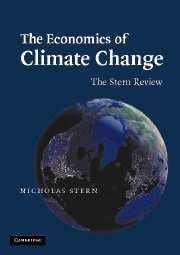This spring Swarthmore College’s students, alumni and faculty stood up to demand that the school’s Board of Managers (their trustees) divest funding in fossil fuel businesses and technologies. I reported on that here in “The State of the War on Climate Change” a few weeks ago. The Board of Managers voted down that option just days later.
What I also reported on in that essay was that this is just the beginning of campus actions to divest in institutional money-making from investments in fossil fuel related businesses. You will read a lot of “reasoning” by trustees and boards on why, while they completely agree with the issues climate change brings up, they cannot vote to re-direct institutional investment policy away from fossil fuels. The bottomline, the only real issue here, is financial risk. Fossil fuel investments have always been a solid chunk of any investor’s portfolio because they tend to be quite lucrative.
Divestment policy is a bit of a misnomer, though. I think most of us who understand the massive societal breadth of the climate change problem assume that schools aren’t just being asked to stop funding these dinosaur industries, they’re being asked to alter investment policies and practices so as to fully support sustainable technologies and clean, renewable energy systems — and climate crises continue to devastate regional economies and urban businesses everywhere.
We have the technology and developmental know-how today to fully adjust our energy systems away from global warming gas emissions. The only thing stopping us is that we’re afraid of the consequences. Yes, such change will cost money (that’s the same thing as saying change requires investment). Energy may become a bit more expensive in the short-term, but just like we’ve witnessed over the last 40 years with the computer and communications industries, those costs drop dramatically as economies of scale are achieved and the incentive for new technologies comes into play.
 Most economists who have looked at this issue agree. The most substantial economic evaluation of climate change, “The Stern Review,” was published seven years ago. The energy efficiency and renewables world has done nothing but become more effective since then.
Most economists who have looked at this issue agree. The most substantial economic evaluation of climate change, “The Stern Review,” was published seven years ago. The energy efficiency and renewables world has done nothing but become more effective since then.
Reinvesting in so-called clean technologies (for want of a more defining term) is not a slam dunk by any means. There’s certainly some risk involved. But, shoot folks, we haven’t been mired in Middle Eastern geopolitical conflict because we’re good people. The costs of our dependence on fossil fuels along with the climate related destruction we’re already seeing everywhere are stacking up in dramatic fashion. We are being so fucking stupid it is now criminally insane. I’m sorry, there’s no other way to say that.
I listen to a lot of people talk about their concerns surrounding climate change. But go out on the highway anywhere in America. By far the most prominent mode of transportation is the SUV — the least efficient vehicle out there. With this year’s fall in oil and gasoline prices, people are driving these vehicles more than ever before. I assure you, they will all give you great rationalizations for this behavior. American cognitive dissonance is truly at an all-time high.
But it is one thing for each of us as individuals to make a choice about how we use energy. It is quite another thing for supposedly leading colleges and universities like Swarthmore, Reed, Harvard, and Yale to acknowledge climate change as the most pressing issue of our time and then to vote for continued profits from the very industries causing that pressing issue. If our leading intellectual institutions are to be so myopic and duplicitous, what hope is there in solving this problem?
Quite frankly, there is no hope.
That’s what student action is all about. The next generation of leaders in this country is not going to let this lunacy stand. And it won’t. They’ve only just begun to fight. Tools are now in place that allow alumni to divert annual giving to a special divestment trust. Go to DivestFund.org to learn more about that. And in the wake of Swarthmore’s near miss with it’s Board of Managers, the Fossil Fuel Divestment Student Network has formed to provide support to student groups around the country as they move to escalate their non-violent actions.
What would have been my annual contribution to my alma mater, Reed College, has gone this year to DivestFund (it’s a meager amount of money, but what do you expect out of a writer?). I also just contributed to the student divestment network. They have a $5,000 goal to help jump-start 20 more campaigns around the country. With a little bit of commitment from you, we should be able to boost their funding to $50,000 before the end of June.
Everyone is so fond of saying that “we owe it to the children of tomorrow” to do something about climate change. Well, the children of today — currently in the process of taking over from us Baby Boomers — are the parents of the children of tomorrow. Either we get with their program or we don’t. What’s it going to be? Whose side are you on?








